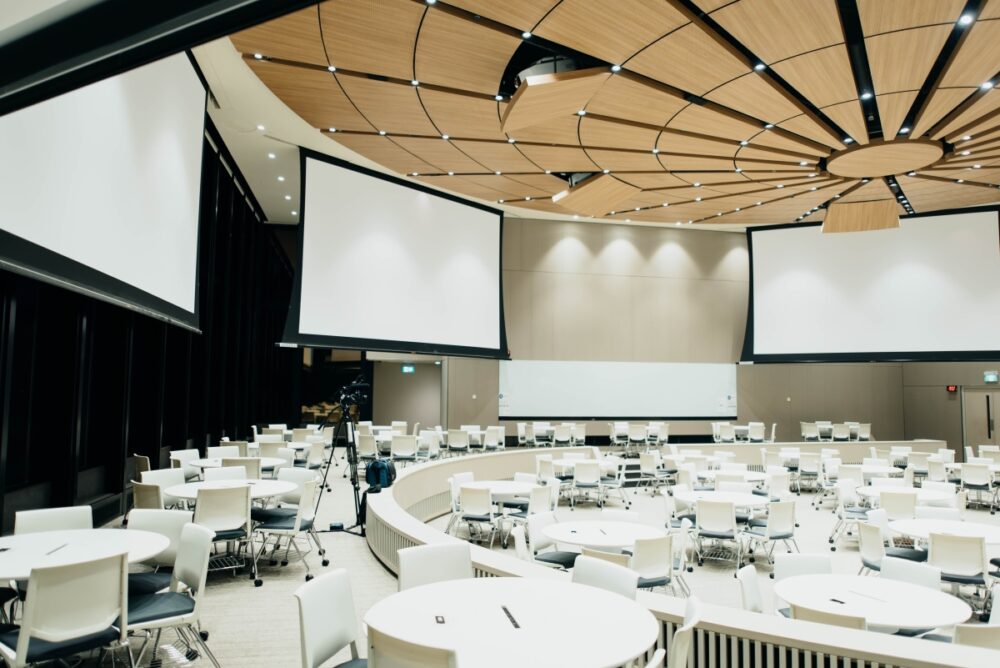Quick 10 Step Checklist on How to Organize an Event
If you need help organizing the major steps to plan an event, you’ve come to the right place.
Finalize Your Event Objectives
The first thing you need to do is finalize what your goals for your event are. You’ll want to ask yourself about the reasons you’re hosting this event. Figuring out your objectives will make it easier to understand the scope of your event’s success later on.
You’ll also want to consider your revenue goals and your target audience. Things like the cost of a ticket and location are important, too. Ensure you have a good idea of where you want your event to occur and create an event schedule to help.
Create a Budget
You’ll need to create an event budget based on your goals. Find out what the major costs will be, which could include location, catering, entertainment, and more. If you’ve held similar events in the past, you can use an old budget for one of those events as a baseline for your new one.
Once you figure out those aspects, consider the ticketing and registration software that you’ll use. If you have any sponsor contributions, factor those into the budget, too. Then you can figure out how much you’ll need to set ticket prices for if it’s a ticketed event.
Settle on a Venue
Once you find out how much you want to spend, the next step is to decide where you want your event to occur. You’ll also need to settle on the date of your event as well as a backup date and venue, just in case something happens that gets in the way of the event.
To decide on a venue, ask what the best location is for the event. Consider what you will need to set up and run the event, including A/V equipment, registration, parking, and more. If you need security, you should talk about that with the venue manager.
You may need special licenses, permits, or insurance. You may also require special accessibility requirements, like wheelchair accessibility, and need to communicate those needs to staff.
You might want to consider a 3d event diagramming software to help you create your desired layout for the event . Some venues even offer those services.
Marketing & Advertising
For this section, you’ll need to decide how you want to advertise your event. Focus on what you want your overarching goal or message to be and build out from that. Make sure that you send reminders to all interested parties about a month or two before the event takes place.
Once you decide on what your message will be, begin coordinating with your social teams. That way, you can figure out the best platforms, digital tools, and team tools you’ll need to use to advertise. If you’ve finalized a date already, make sure to add the dates to any online calendars you have and include it in your advertisements.
You may want to consider creating blog posts dedicated to marketing the event. When you begin marketing on your blog or other social media outlets, make sure to use various media, including videos and images.
Event Staff
You’ll most likely need to hire outside staff for your event, which will impact your budget. You may be able to get by with just volunteers, but it’s still a good idea to plan for more than volunteers.
Make sure all of your staff and volunteers have specific tasks. This might include media relations, printed design, or VIP coordination. You might also need a staff member to look after the company’s social media or other online presence.
Event Speakers
One of the more important things you need to do to plan an event is finding out if you need any speakers, who they should be, and what they need to discuss. Sometimes, speakers will charge a fee, which you will need to factor into your budget.
You’ll probably need to assign a specific speaker or entertainer liaison to communicate with potential event speakers. They’ll also be able to finalize presentation and speech topics and get information about the presenter to advertise them.
It’s a good idea to make sure that everyone signs their contracts before you start advertising a speaker, just in case. You can also use their network to promote your event, so don’t be shy about it.
Consider Your Sponsors
When you set up your event, you might need a few sponsors to offset the cost. Make sure that you meet with them and get access to their logos to include them in your advertisements.
Once you’ve located potential sponsorships, tell them about your event and why they should support it. To finalize the sponsorship, you’ll need to follow up with them and gather any promotional materials. Also, don’t be afraid to ask the sponsor to share the event.
A/V – Audio Visuals
For this, you’ll first need to finalize what you want your event to include. If you have a speaker, you’ll need audio equipment. If you’re going to record or broadcast the event, you’ll need to hire a camera crew or rent the equipment to record it. Some events may require more immersive content than others, so keep that in mind as you plan.
Set Your Stage
The stage is an important part of the event, especially if you have one or more speakers. If your event requires a stage, you should consider that when choosing a venue. Remember that if you find the perfect venue that doesn’t have a stage, you can build one.
Think about what needs to go on the stage. Depending on the event, you might need a projector, microphones, various cables, or an internet connection.
Keeping Track of Attendees
The people coming to your event are crucial to the event. Communicate with them, but don’t overwhelm them. Provide them with information about the event, ticket prices, fees, accessibility, and venue access points. Sending emails is a good way of keeping them informed without overwhelming them.
Conclusion
Although there’s a lot to keep in mind when it comes to event planning, with this 10-step checklist, you should have more tools to help you out. Just keep these tips in mind and you should end up with a well-organized event.

